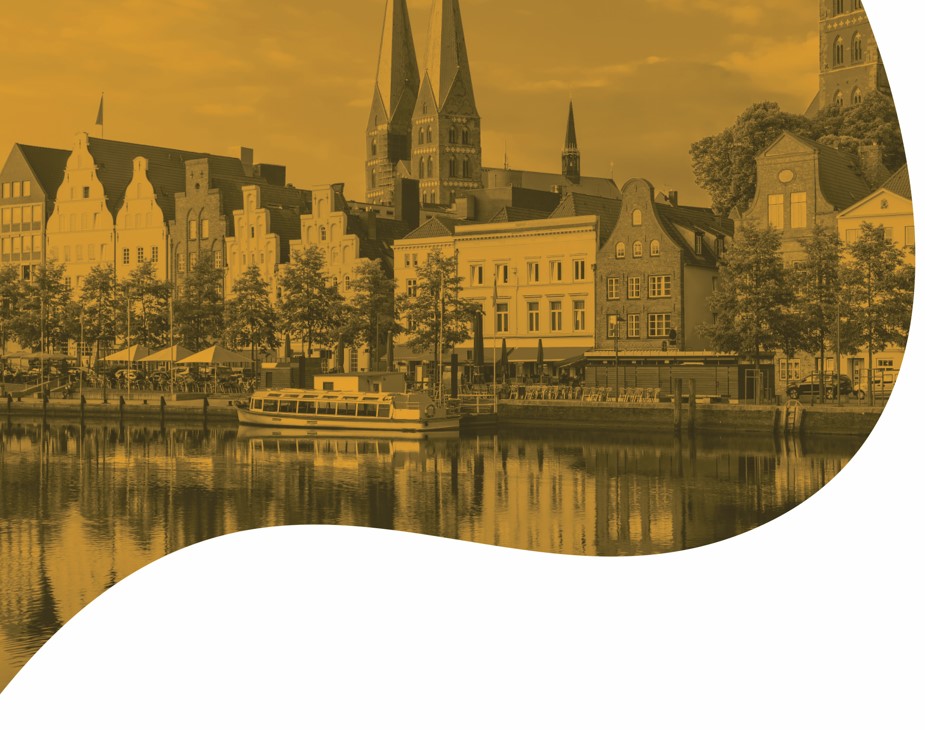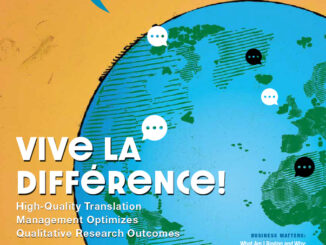A socio-cultural, psychological exploration of the factors behind the decline.

By Edward Appleton
President
Appleton Insights
 Is Germany becoming an impoverished country? Poor? Germany?
Is Germany becoming an impoverished country? Poor? Germany?
The idea seems laughable—wage levels are still relatively high in both a global and EU comparison, the economy is still the third largest in the world, and BMW and many other global manufacturing companies still enjoy strong export figures. But scratch the surface and a very different picture emerges.
Economic growth has largely disappeared over the past three years. Insolvencies are up strongly year-over-year. Infrastructure is crumbling. Digitally, the country is lagging behind. Healthcare and pension systems are teetering on the edge. Importantly, consumer confidence levels are very low and show no signs of a significant upturn.
Shocking, almost taboo as it may be to suggest, poverty is indeed raising its head in a country where Wohlstand (prosperity) was once taken for granted.
Prosperity—Auf Wiedersehen (Goodbye)?
For someone who’s lived and worked in Germany for decades, the current mood is strange. There’s a crumbling of confidence—a poverty creep—subtle but growing. Not the poverty of empty fridges, but of shrinking optimism, of tightened lives. Even those further up the income scale are cutting back.
In this article, I won’t dwell on economic models or shopper stats—although I’ll sketch a few to provide a snapshot. Instead, I want to explore how certain deep-seated cultural values, once drivers of prosperity, seem to be inhibiting resilience.
What happens when a society that values orderliness and consensus meets a world shaped by unpredictability? What does that mean for us—as researchers, marketers, communicators—trying to read the signals, connect with real people, and perhaps even help shift the tone?
First, let’s briefly look at some “poverty facts.” In late 2024, over a third of Germans said they were buying only essentials (Markenartikel 12/2024—Norisbank). One in four gave up “extras,” like restaurants, gyms, or travel. This wasn’t confined to low-income groups. Even those with means reported doing without.
Oddly, it’s not a cash problem—savings are at a record high. But spending has stalled. Seventy percent say they’re saving for an uncertain future (ING, 12/2024).
The assumption that things will be fine, “the State will provide,” has been shattered—first the migration crisis, then COVID, then the Ukraine war, huge energy price fluctuations . . . multiple hammer blows.
But beyond these external negatives, the loss of confidence and sense of paralysis goes deeper, rooted in cultural and psychological forces. What used to be key German virtues, e.g., discipline, orderliness, and prudence, seem to be flipping into negatives, holding people back.
In the next section, I’ll explore five of these flipped “virtues” and how they’re playing out in consumer behavior.
1] Sustainability—from Eco-Idealism to Guilt Creep
A cultural commitment to responsible, eco-attuned and ethical consumption—once a point of pride—is now flipping, creating friction in everyday choices. When an act of consumption carries weight, guilt isn’t far behind.
German society has long and deep eco-roots, an affinity to nature and all things natural. The retail co-operative Reformhaus, for example, goes back over 100 years, and has its powerful roots in responsible consumption and the “Lebensreformbewegung” (a historic movement promoting natural living, health, and sustainability as a response to industrialization). Dm is another example—a high-street drugstore chain whose founder, Götz Werner, was inspired by the anthroposophical ideas of Rudolf Steiner (a spiritual philosophy emphasizing holistic education, natural living, and the connection between humans and nature).
It’s all fabulous stuff. But taken to its extreme, eco-thinking can flip and become the enemy of consumption: guilt creeps in, dominating the pleasure principle. The Zero Waste Movement is a good example. The first principle is don’t consume. This definitely comes with a tinge of anti-capitalism in it.
For everyday shopping, on-pack eco-signifiers (think packaging labels) cannot just be confusing but can actually lead to people questioning their validity (“greenwashing?”), even ignoring them—and at the worst, triggering potential eco-guilt thoughts.
More simply, eco-conscious purchasing is too expensive for many and creates an uncomfortable psychology: wanting to help but feeling potentially bad about not being able to afford to do so.
2] From Consensus to Inhibition
A cultural strength rooted in consensus—once key to Germany’s post-war success—is now becoming a weakness. In today’s fast-paced world, a group mindset can hinder individual agency and self-expression.
Some context: consensus management was a notable strength of the post-war German economy—avoiding and resolving conflicts between employers and employees, for example, but also as a mode of decision-making within groups. This resulted in building social harmony and making decisions collectively. For a long time, this cultural trait fostered stability and prosperity. Decisions took longer, but created consensus, invariably forming a robust platform and framework for taking action.
This admirable strength has downfalls in a fast-changing, digitally driven economy—notably the lack of speed in decision-making and, importantly, groupthink. The individual cedes to the group. Socially desirable responses easily dominate. It also mutes the pleasure principle—is this selfish or permissible? What does my peer group think?
Purchases that feel self-indulgent or are questionable from an eco-standpoint are postponed, canceled, even. Brands that encourage uninhibited self-expression and individuality feel out of step.
Not all research is equipped or even briefed to unpack this complexity or get to hidden drivers—methods that access underlying emotions that are perhaps not socially acceptable are often sacrificed in the rush to quick results with low costs attached.
3] From Idealism to Fatalism
A long-standing cultural drive to “do things properly” is now flipping—turning a high-standards mentality into inaction. In today’s volatile environment, perfectionism can paralyze rather than empower.
There is a strong and long German tradition of idealism—which has permeated everyday thinking and decision-making, even shopping. It touches on a fundamental approach to life—doing things right and going for the perfect solution. Pragmatism often falls by the wayside.
If a new service or product is introduced, there is invariably a desire to think things through thoroughly, to the nth degree, and possibly exhaust all mini-branches of a decision tree, however unlikely a particular outcome might be.
The outcome—an overburdening complexity that isn’t warranted, often leading to things simply not happening, or happening very slowly. Over-engineering examples abound—take Deutsche Bahn’s ICE trains: when repairs are needed, they are complex, take a long time, and are expensive. Or Brandenburg’s newly built airport (BER): designs for safety systems were so elaborate they couldn’t pass inspection. The airport’s completion was significantly late and over budget.
In a world where speed is often critical, this obsession with perfection flips to become a disadvantage. Mentally, it can also be onerous, leading to resignation. In a Program for International Student Assessment (PISA) study examining attitudes among 15-year-olds across the globe, Germans were at the bottom in a “change the world” ranking. Younger Germans were the least optimistic that they could change anything.
4] Rules Gone Crazy . . .
A shift from “rules” to “red-tape madness,” a cultural strength grounded in structure and reliability, is flipping—over-regulation and procedural overload are stifling initiative, risk-taking, and everyday aspirations.
This isn’t necessarily a purely country-specific issue—many would point to the EU as a bureaucratic monster. But “orderliness”—the adherence to and embracing of rules—is definitely a German thing.
Reliability, things working properly, trains running on time—this is what many associate with “Germanness,” and it all derives from rulemaking. This is not good if you’re planning a party, but for the smooth running of a society, it’s not a bad place to start.
But when the world around you changes fast, and rules remain in a seemingly different universe, the impact is devastating. Perceptual downsides abide.
In terms of everyday consumption, it’s potentially discouraging (and expensive) if a coffee shop chain will only sell you a recyclable lid for your coffee to go. Or if your yogurt pack no longer comes with a lid. Discussions about how and if pizza cartons are to be correctly disposed of may resonate in trendy bubbles such as Berlin, but they don’t exactly encourage spontaneous purchase in smaller and less wealthy towns.
5] From Risk Aversion to Missed Opportunities.
A deeply ingrained caution, long seen as a form of prudence, is flipping—turning into hesitation that holds people back from adaptation, innovation, and . . . enjoyment.
A salient German psychological trait over the past 100–150 years would likely be “Angst” (a deep-seated fear or anxiety about uncertainty, often leading to hesitation or over-caution). A big concept—but what that means in simpler, more consumerist terms is avoiding making mistakes.
One sees it in investment patterns—save rather than invest, a mistrust of the stock market, and a willful ignoring of global financial intelligence gathered over a century.
It impacts many areas—cautiousness when it comes to experimenting, slowness in rethinking a way of doing something, or stumbling in the area of reimagination.
For innovation managers, it’s a challenge. It’s not uncommon to find broader ranges with more innovative variants of everyday food items in a supermarket in adjacent European countries than with their German equivalents. For marketers, the temptation is to stick with the low-risk, low-cost options that are familiar rather than to go for more breakthrough, category-changing concepts.
Not good in a time when change across the globe is happening extremely quickly.

Call to Action—the Road Back to Responsible Enjoyment
So, what, if anything, can market research and its clients in marketing and R&D do to help nudge things back toward a more carefree shopping attitude, to help loosen purse strings? Where the pleasure principle is allowed to nudge its way back up the decision hierarchy.
The ability to change the mood music lies more squarely with “the powerful”—those at the head of companies, media, manufacturing, journalists . . . and other influencers.
Which is the group we fall into? Given that every small nudge counts, here are a few ideas.
Leave the Ivory Tower
It’s worth repeating, in this context, that a lot of marketing and advertising people live in bubbles in larger cities and are comparatively sheltered.
This can easily lead to biases becoming orthodoxies, but more importantly, to an empathy gap; being out of touch results in resonance deficiencies, which is where research folk can step up.
Ensure that voices from all walks of life get a chance to be heard—the less well-off, the older, and those whose opinions we may not agree with. Clients determine project briefs, but we can be effective nudgers.
Even if you don’t fancy leaving your own ivory tower, at least remind yourself of your biases on a regular basis!
Break Rules
If you’re a client-side researcher, the idea of breaking rules may sound like wishful thinking—good in theory, but another thing in practice.
I’d argue that even in the most risk-averse cultures, finding room to play with accepted processes and protocols is what keeps the sense of spirit and fun alive.
Research that is seen as delivering standard outcomes is endangered in the next round of cost-cutting.
Maybe it’s time to:
- Create counterbalances—be more playful; break rules even. Not exactly casting care to the wind, but exploring briefs differently with trusted clients or stakeholders.
- Reengage with experimental designs; invest in research-on-research.
- Find ways of presenting results differently—exploit the surprise factor more often. Start with the conclusions and use very few words or images, for example.
- Find a way to make even your most mundane project memorable for everybody involved, more of an experience than a transaction.
It is easier said than done, given the pressures on speed to topline and costs—but with no dreams left, we become predictable and impoverished!
Look to the Fringes
Finally, a glance at the edges can be galvanizing.
Always concentrating on the mainstream, the eminently sensible, and unquestionably acceptable can be limiting—so leaps of imagination and reinvention become fewer and far between.
Sometimes, “outliers,” voices on the fringe, are actually ahead of the curve. Perhaps we need to ensure that more of them are included in our everyday research. Recruit for difference, not just relevance.
We don’t always need to be sense-makers—sometimes it’s good to allow the less obvious into our rational, analytical worlds. Maybe try being an anti-sense maker for a portion of the next project—where you document things you didn’t understand. Get inspired: note what surprises you, confuses you, or even what you instinctively want to filter out. Let anomalies breathe before you collapse them into themes. When reporting, resist the urge to tidy everything up—sometimes the most generative insights live in what seems unresolved.
Maybe try being an anti-sense maker for a portion of the next project—where you document things you didn’t understand. Get inspired: note what surprises you, confuses you, or even what you instinctively want to filter out. Let anomalies breathe before you collapse them into themes. When reporting, resist the urge to tidy everything up—sometimes the most generative insights live in what seems unresolved.
The cultural factors described above are specific to Germany, but a sense of cultural malaise and impoverishment is not. It’s more widespread and certainly palpable in many advanced economies. Helping to counter inhibition, reinject energy and belief, is a huge task, but every little bit helps. Breaking rules, listening to outliers, and leaving one’s own bubble, as suggested above, may seem like small changes. But add them together, mix in your own personal ideas, and watch as they loosen things up and hopefully also reawaken a sense of possibility, the ability to dream. Universal rights, maybe? Certainly, things worth fighting for!




